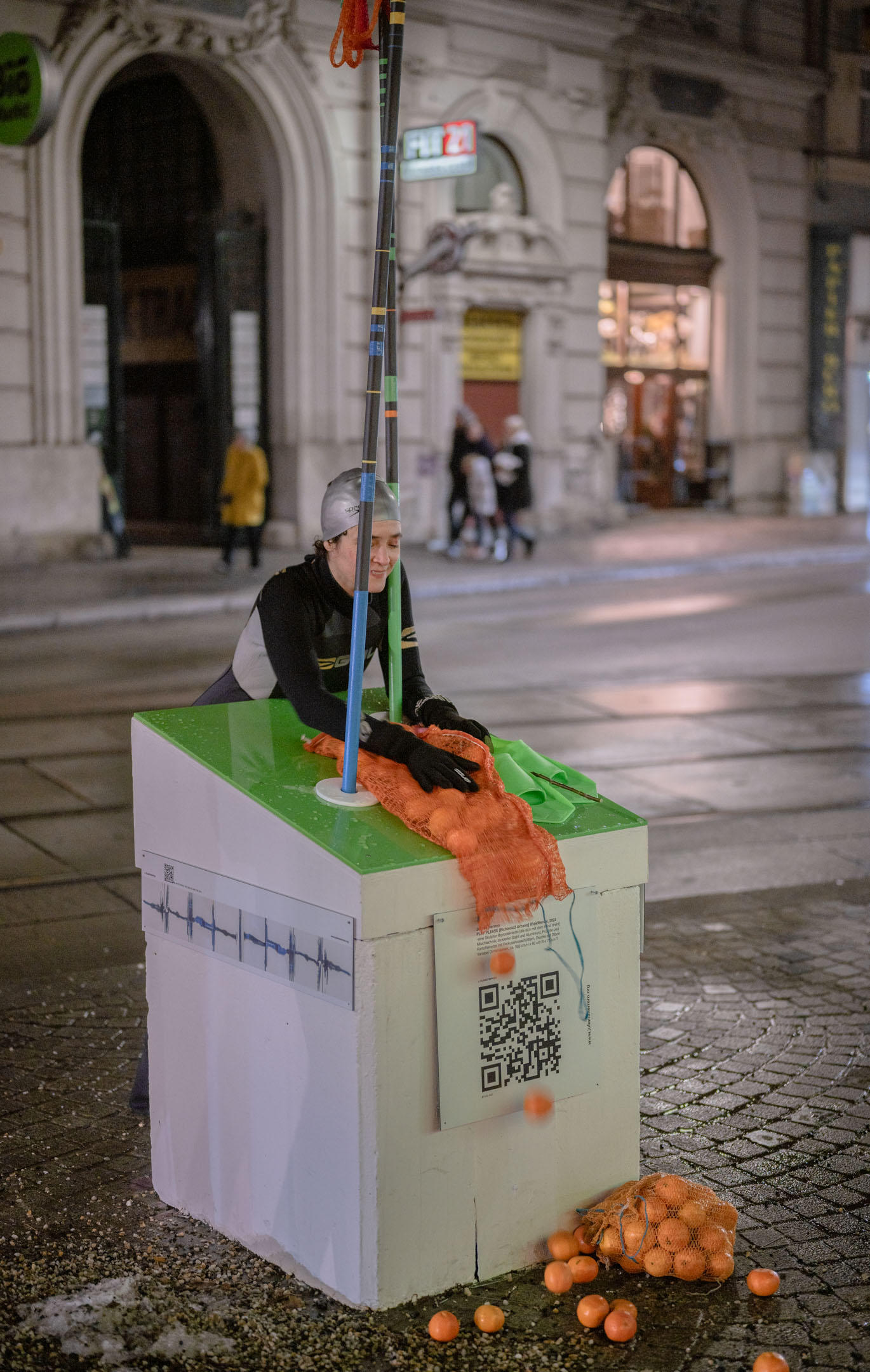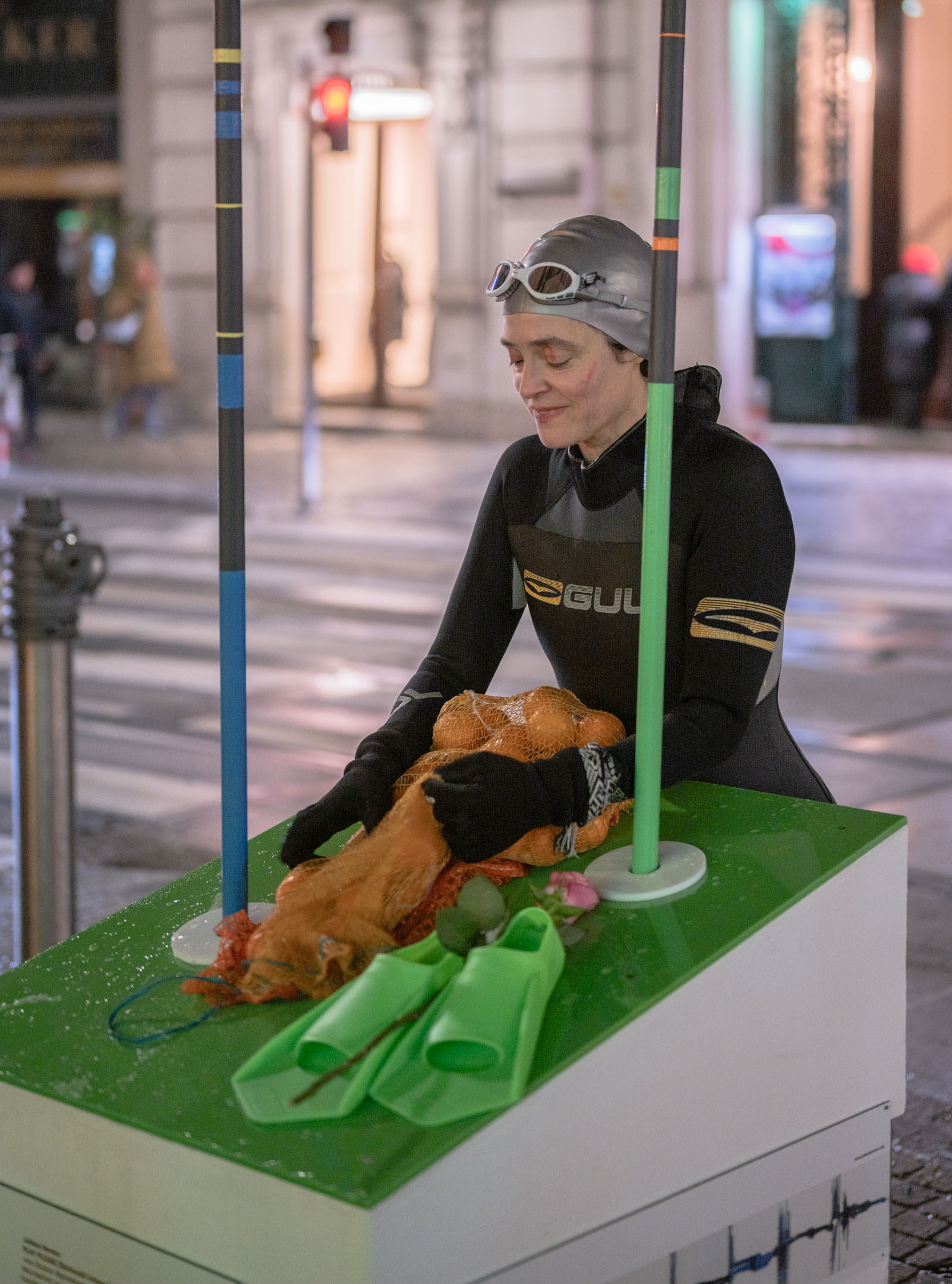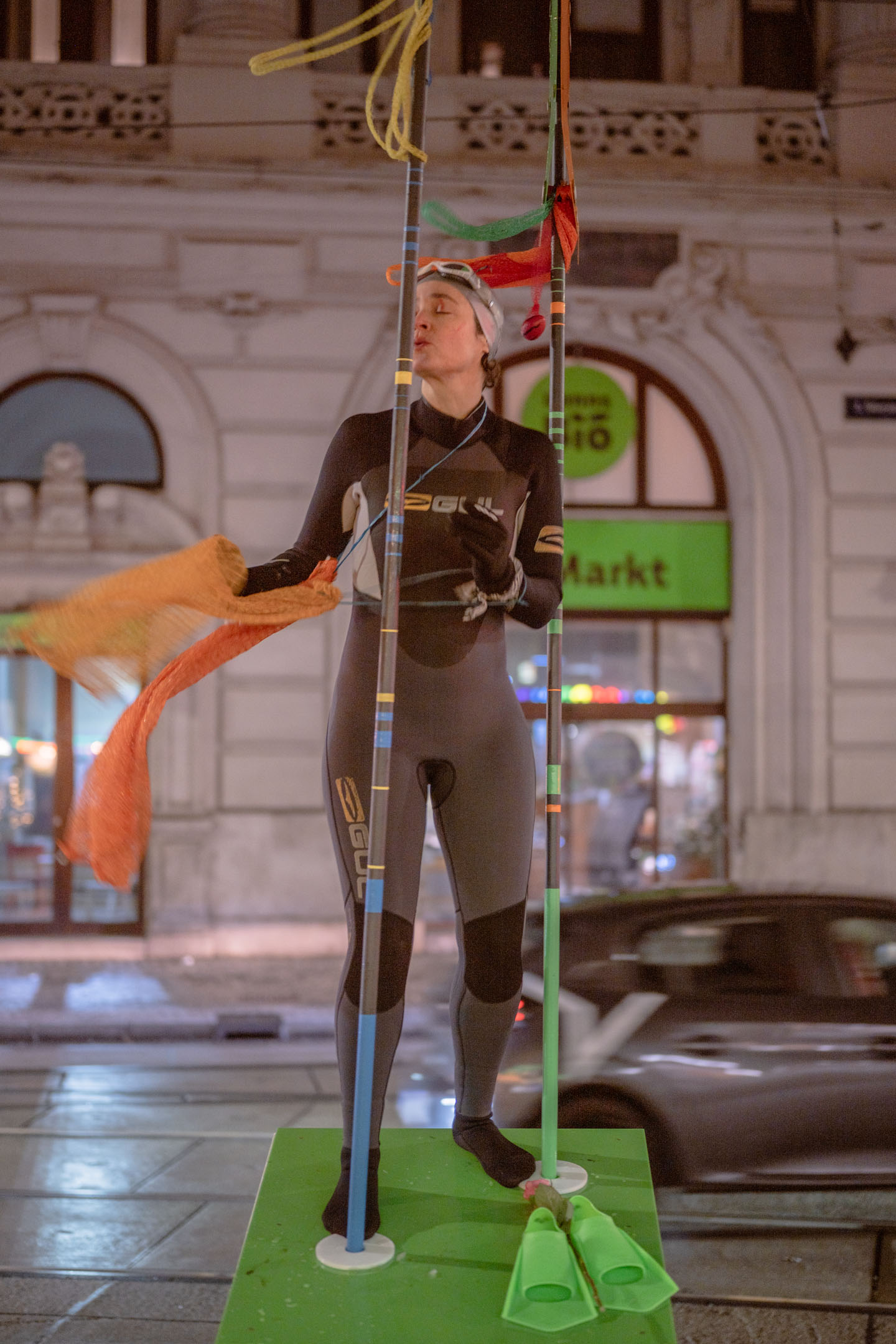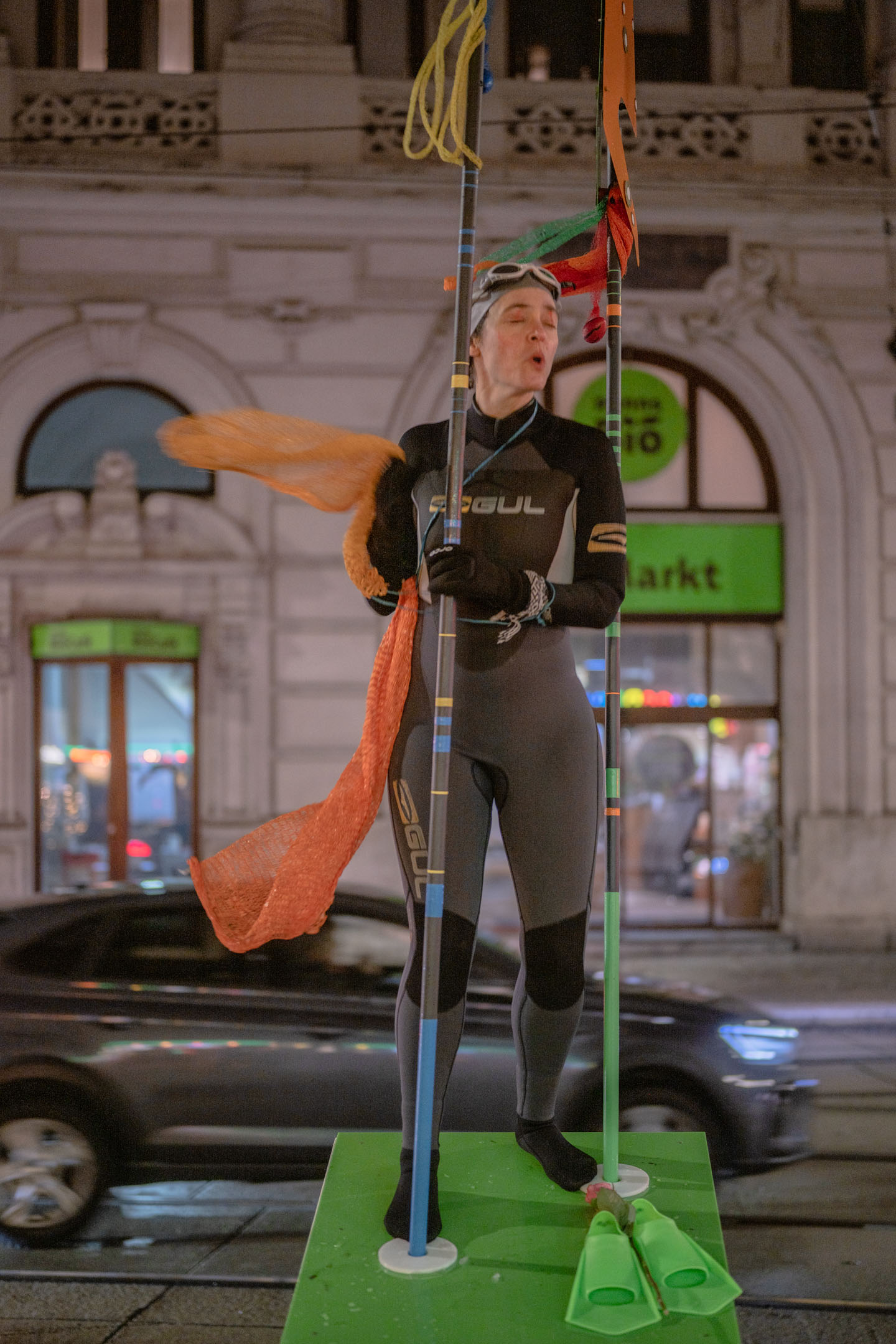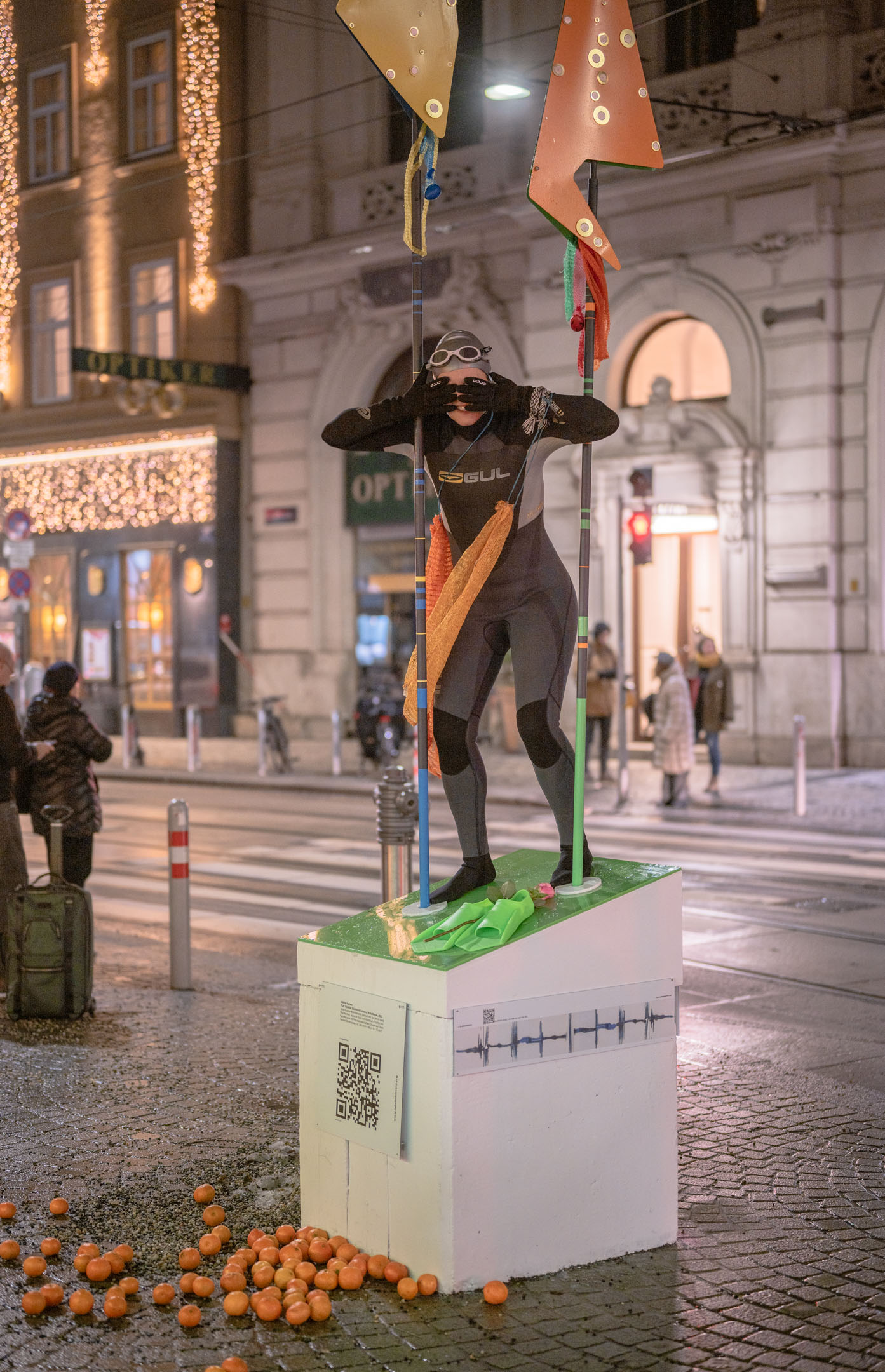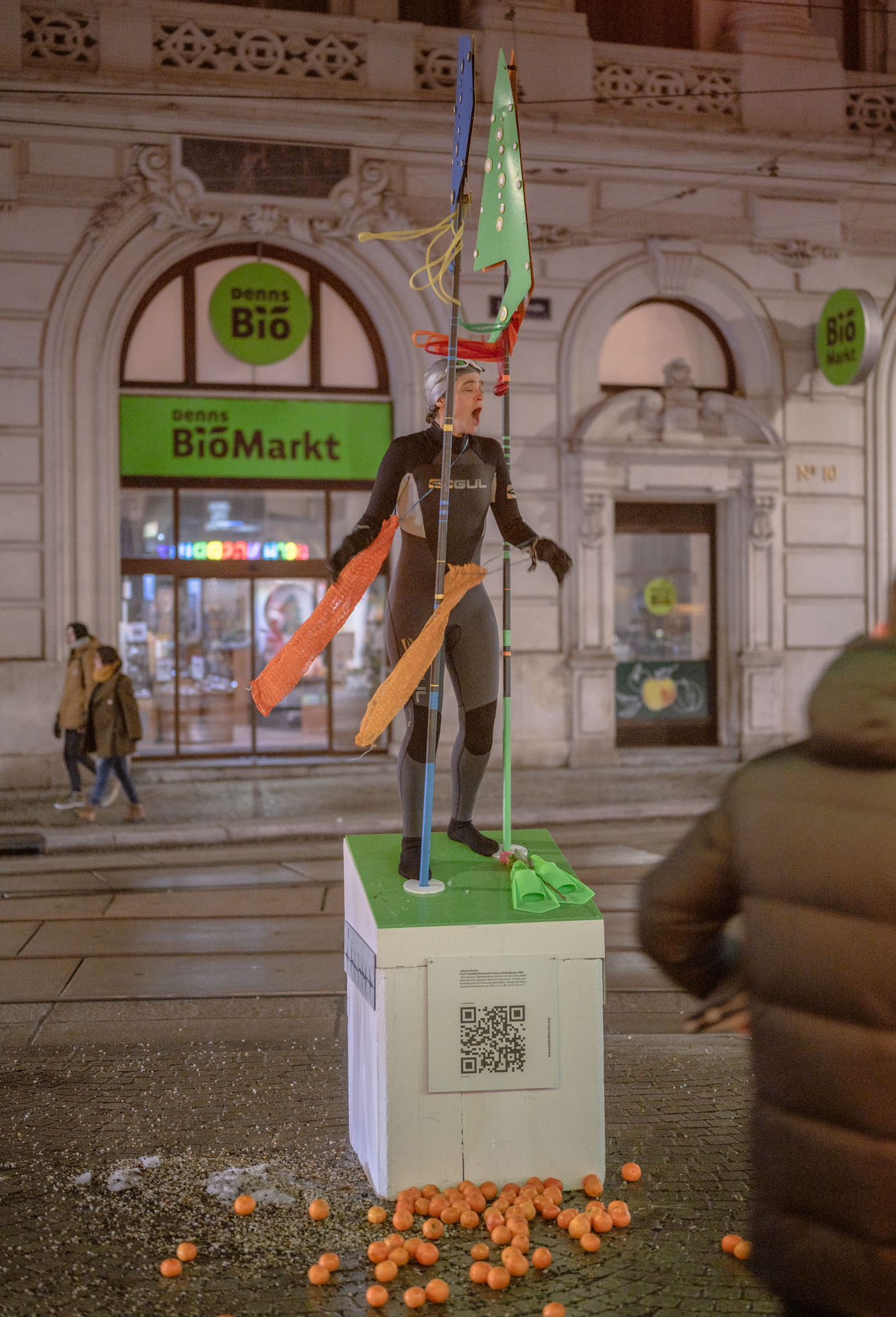
In My Guts (I)
Improvisation PERFORMANCE
Sa 9.12.23,
Voice [prosa al viento] tunes, melodies and words, swimming suit
as opening intervention live for the piece in public space: PLAY PLEASE [bichinoid3 urbano] @!die Wende, 2023
The sculpture has been inaugurated with the opening performance [ON MY GUTS]. Based on pop songs from [Poetry of Heritage], pop and Christian roots, the performance improvises in the form of a [rogativa]. Cultures, [micro]actions and [credos] enter into a [sur]realisation process as resistance to a global capitalist apparatus that affects everyone. Fruits symbolise abundance: joy, peace and prosperity for humanity and planetary habitat.
—
Detailed Text:
Based on popular songs of ancestral, pop and christian roots, the performance improvises into the form of a [rogativa].
This performance piece is a desire to contribute to the [artistmission] specifically in tangential encounters where daily light, cultures, [micro]action in the urban fabric, and [credos] enter a process of [Sur]realization within our [Bichinoid3], whose quadrature is serving as a framing device and framework. In this way, a micro-performance takes wings to perhaps subtly touch hearts through a cute and strangely attuned combination in an imaginary journey through familiar and less familiar melodies. Expanding in visual and sonic poetry from [Moyi Tún papai Inché] into [the light of the dark black night], where [da haben die Dornen Rosen getragen] as paraphrasing the ancestral song, the Beatles‘ „Black Bird“ and „Maria durch ein Dornwald ging“ I embodied my first instrument per se, my voice. Interweaving tonal harmonies with the rhythm of the words, reinventing myself and giving my all to the work, I joyfully faced the freezing night in a worthy act of resistance and faith.
For me, it was important to open with oranges [the fruits of the Earth and the labour of humanity] – for the abundance of what we all and the world need [love, peace, spiritual gifts, as well as material consistency rooted on Earth]. The reason I wanted to start and end the voice parts with [Moyi Tún papai Inché] a song I learned in Esquel in my early childhood, is that this song in the native language is quite beautiful but also speaks of the oppression of the native Patagonian ancestors, related to the conquest of the desert. The words spoken out in Spanish are extracts from the author’s original translation. And it was meant to say by taking up [chubutano] Valeriano Avilés’ last phrase which I reinterpreted to bridge the gaps and distances: [there are horses and people, there used to be Tehuelche].
Photos © Michael Nagl
